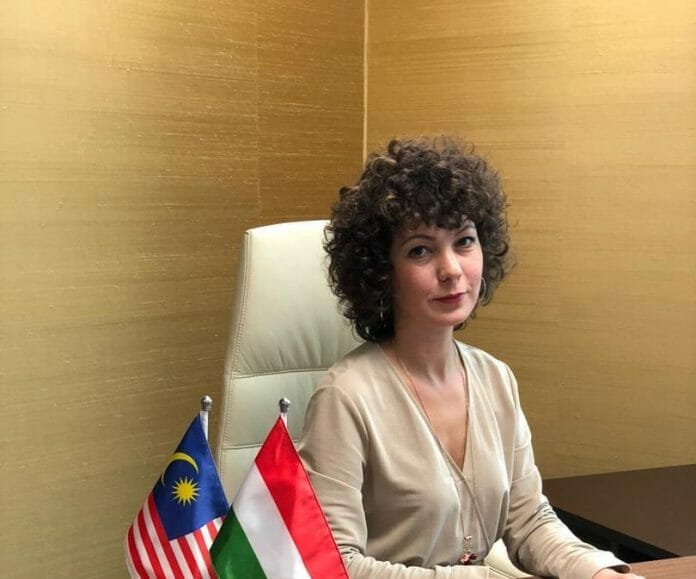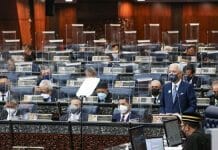BusinessToday speaks to Hungarian Ambassador to Malaysia, H.E. Dr Petra Ponevács-Pana, on the relationship both Hungary and Malaysia enjoy and the business opportunities Hungary has in store for Malaysian companies looking for greener pastures.
How has diplomatic and trade relationships between our countries evolved over the years?
It is getting better. The reopening of our embassy in Kuala Lumpur after 6 years is in line with the intention of the Hungarian Government to further strengthen both the diplomatic and trade ties between our nations. The ambitious foreign policy direction called “Opening to the East” was announced by the government in 2011 with the aim to increase the visibility of Hungary in the region through reopening multiple embassies that were shut down due to the world economic crises in 2008. As part of this policy, the embassy in Kuala Lumpur was reopened in 2015 and we see a continuous development of overall trade figures between Hungary and Malaysia ever since.
If we look at only to the last 4 years data an admirable 40,4% expansion in bilateral trade can be seen and in 2020 it almost reached $1 billion. Even the difficulties of last year were unable to break the positive trend and I believe it shows the strong connection between our nations’ economies. It is my firm belief that the two countries relation has not reached its peak yet. My aim as a newly appointed ambassador is to maintain this impetus.
So far, the key driver in the trade relation was the electrical and electronics (E&E) sector and probably it will remain like this but I see potential in other sectors too. For instance, a focus of mine is to finalize export authorization for Hungarian meat products, such as poultry, beef and, for the non-Muslim community, pork. But besides the food industry, the embassy has been actively and successfully promoting ICT and water related solutions and technologies as well.
Overall, it can be said that Malaysia has become a key partner of Hungary (29th trading partner in the world, and the 2nd most important trading partner in the ASEAN in 2020) and this was achieved through a partnership based on mutual respect. This was shown for example in the fact that after the first shipment of rubber gloves during the first wave of the Covid-19 pandemic the Hungarian authorities were so satisfied with the quality of the Malaysian products that from there on they only wanted to purchase exclusively from Malaysian firms.
What are the opportunities like for Malaysian businesses in Hungary?
One of the key buzzword when we talk about why to choose Hungary is “lowest corporate income tax in the European Union”, which is 9% currently. Moreover, the government is offering a wide range of subsidies (VIP cash subsidies) and incentives (development tax incentives) to develop the country’s competitiveness.
The maximum regional aid intensity in Hungary varies between 20% and 50%, except in Budapest and several towns of Central Hungary where no regional aid can be granted. Thanks to all measures accepted by the government despite the negative effect of the pandemic foreign direct investment in Hungary rose by 140 % from $1.15 billion to $2.77 billion last year.
We are an open economy and its high-quality infrastructure and central location are features that makes it an attractive destination for investment. Attracting FDI is an important priority for the government, especially in manufacturing and export-oriented sectors.
As I said, the export from Malaysia has been increasing steadily in the last couple of years and in 2020 it has managed to double the increase from 21,4% in 2019 to 40,4%.
According to the Federation of Malaysian Manufacturers, at least 50+ companies are actively exporting to Hungary. Out of this, some has branch in Hungary like Mega Fortris Group, which established its factory in 1996 and the company is a specialised designer and manufacturer of security seals.
Similarly to Malaysia, in Hungary, the automotive sector and connected industries are a key driver for the economy. Besides Germany, Hungary is the only country where you can find the three main German carmaker Audi, Daimler and BMW in the country.
Furthermore, the country managed to attract Suzuki, Opel as well and if we look at the connected industries, we have to mention companies like Continental, Bridgestone, Hankook as well as the Bosch Group or the Denso Corporation. Hence, Malaysian Tier 1, 2 and 3 suppliers in the automotive industry certainly have opportunities in Hungary.
What was the tourist sentiment like in the pre-Covid days?
The number of tourists arriving in Malaysia recorded 11,000 in 2018, 2,000 in 2019 and around 1,500 in 2021.
Hungarians has often looked towards major destinations in neighbouring countries but they are definitely changing their mind slowly and looking at Malaysia too. I believe that with the support of Tourism Malaysia destinations in this beautiful country will be able to attract more potential Hungarian travellers and we at the embassy committedly work to achieve this goal.
We are half way through 2021, what diplomatic engagements will take place between the two countries in the next 6 months?
My intention was to engage more with Hungarians in Malaysia because I think it is an excellent opportunity as an Ambassador to learn from those who has been living here for many years. These fellow citizens are active in many sectors; I should wisely use you know not only the knowledge but also the network they have.
However, the current pandemic situation is not helping my plans. I hope that Malaysia will overcome of the challenges COVID imposed and we will have the chance to organize more event in the second half of the year.
Once interstate travel ban is lifted, I would like to visit other states to promote Hungarian businesses and technologies as well as the scholarship opportunities that Hungary offers to Malaysians. However most importantly, when it comes to bilateral economic relations, we are waiting for the opportunity to set up the joint economic committee (JEC) between both our countries. The JEC will hold sessions periodically with the aim to promote partnership the two countries’ business community and provides a platform to discuss topics that might hinder trade or investment relations.









